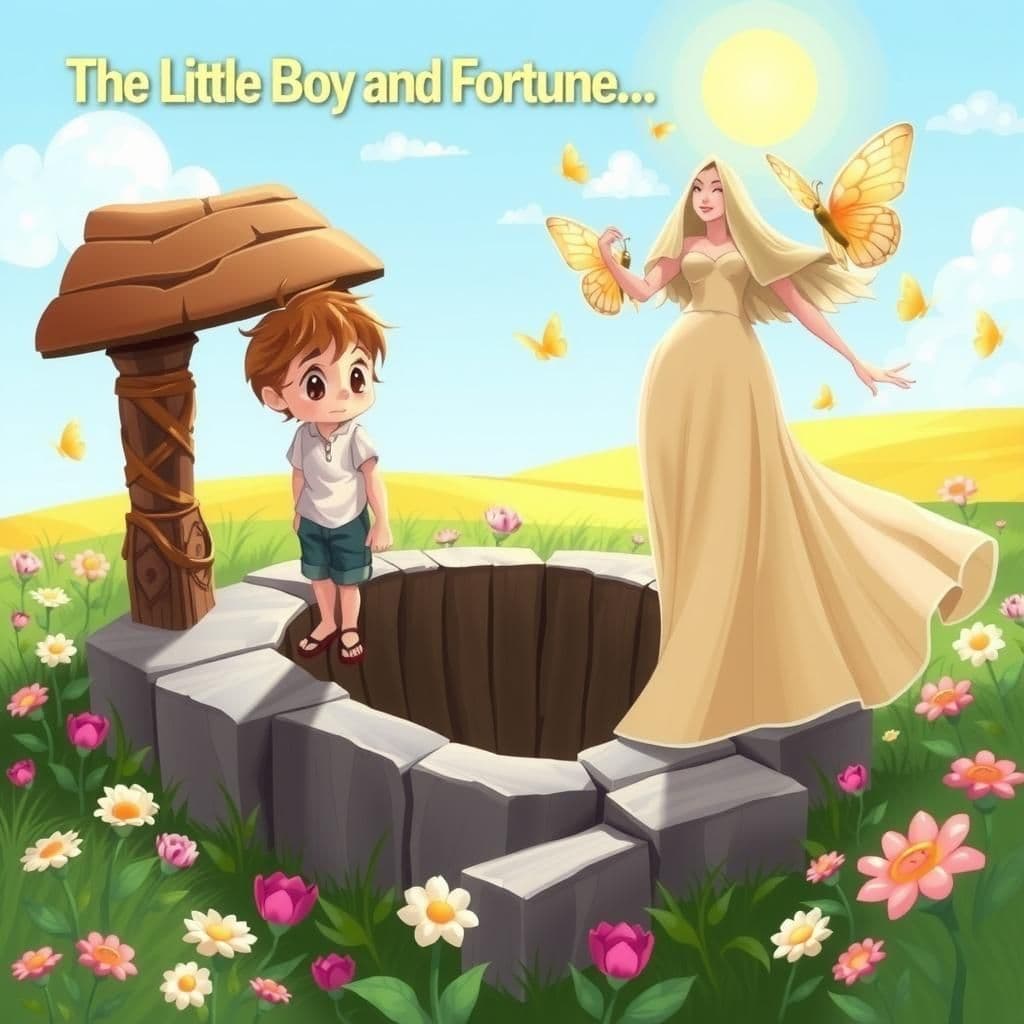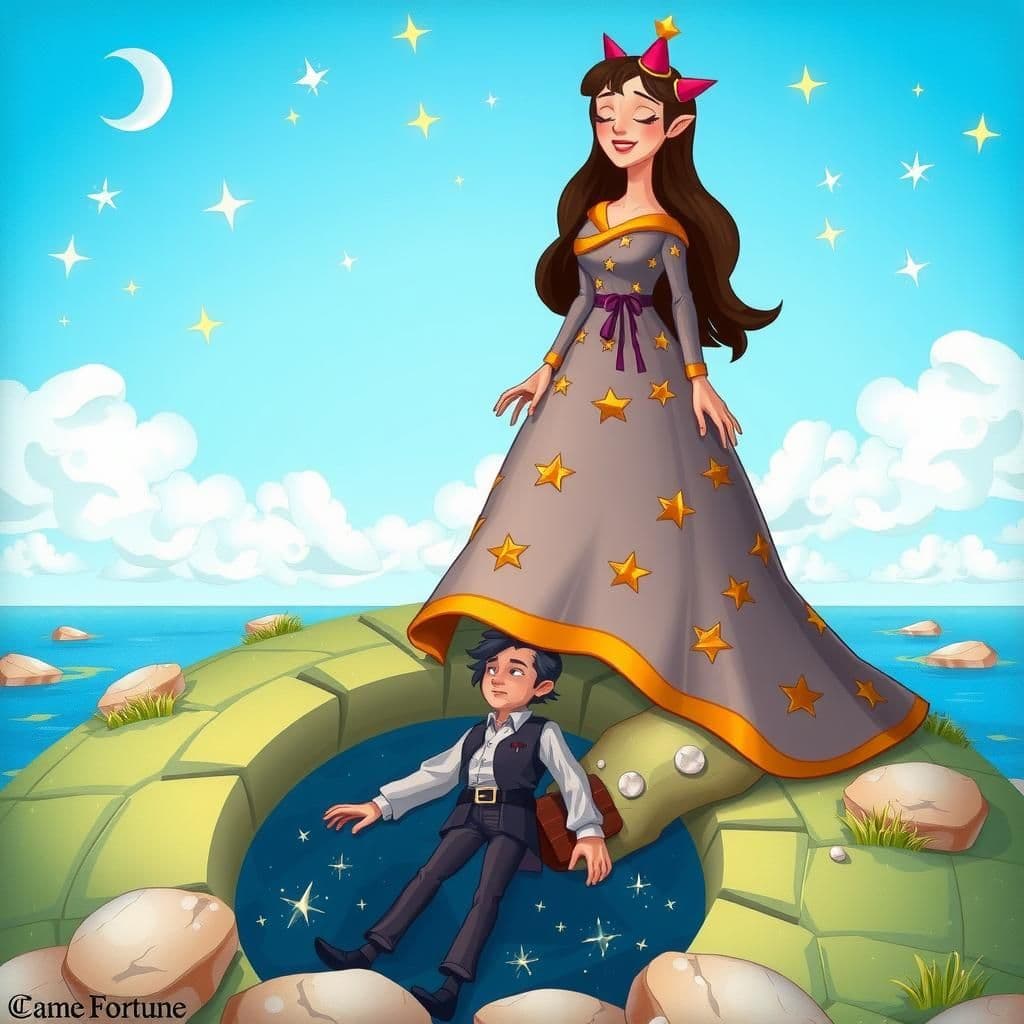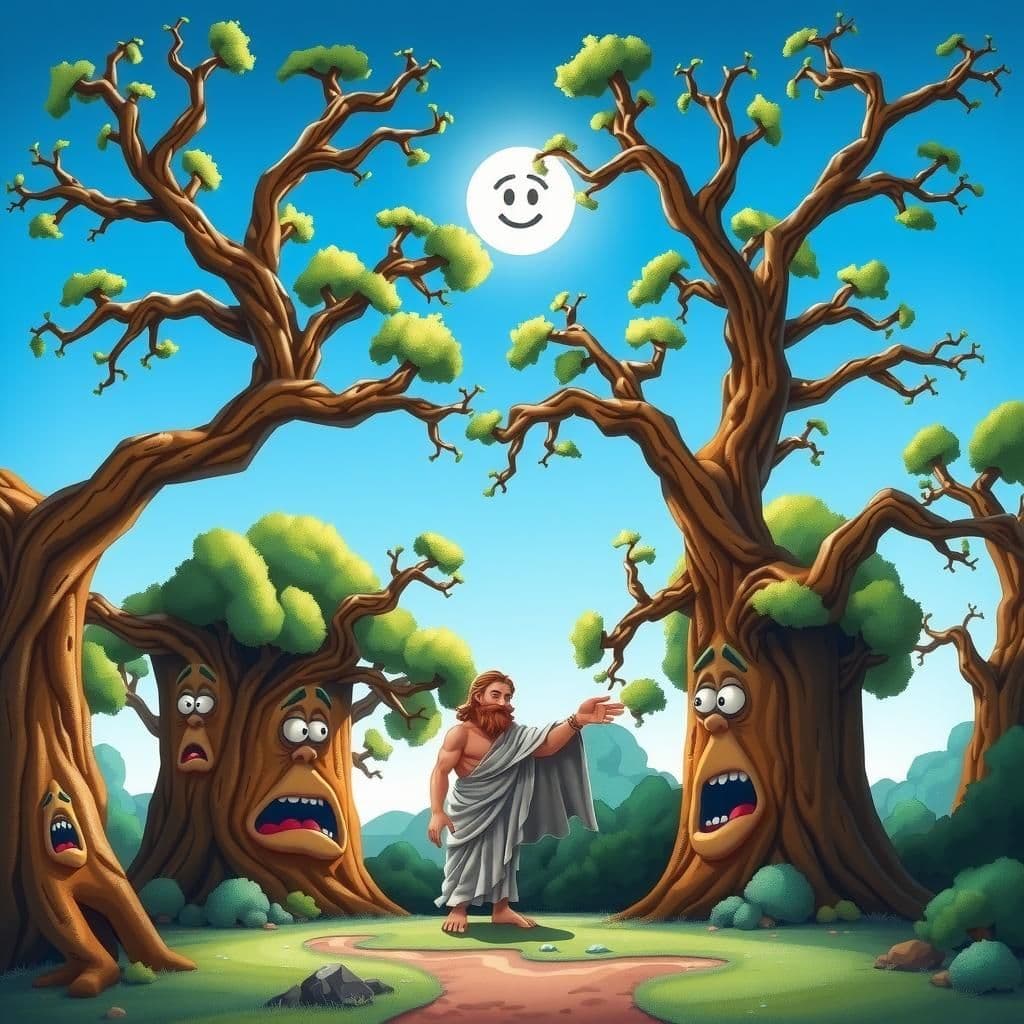The Little Boy and Fortune

Story Summary
In this inspirational short story with a moral, a weary little boy on the brink of a deep well is awakened by Dame Fortune, who warns him about the tendency of people to blame her for their misfortunes caused by their own foolishness. She emphasizes that each individual is ultimately the master of their own fate, highlighting a key lesson found in popular moral stories: personal responsibility is essential for avoiding calamity.
Click to reveal the moral of the story
The moral of the story is that individuals are often responsible for their own misfortunes, rather than blaming external forces like luck or fate.
Historical Context
This story echoes themes found in ancient fables and moral tales, particularly those attributed to Aesop and later retellings in various cultures that emphasize personal responsibility and the consequences of one's actions. The character of Dame Fortune, often depicted as a personification of luck or fate, reflects medieval and Renaissance beliefs about fortune's capriciousness, suggesting that individuals ultimately shape their destinies through their choices, rather than being solely at the mercy of external forces. Such narratives have been influential in shaping moral philosophy and storytelling traditions across Europe and beyond.
Our Editors Opinion
This story reflects the modern reality that individuals often seek to attribute their misfortunes to external forces rather than acknowledging their own choices and actions. For instance, a student who fails an exam might blame the teacher's grading system rather than their own lack of preparation, highlighting the importance of personal accountability in shaping one’s destiny.
You May Also Like

Dame Fortune and the Traveller
In this captivating moral story, Dame Fortune discovers a weary Traveller asleep near a deep well and fears he might fall in, leading to unjust accusations against her. To prevent this from happening, she takes drastic action and rolls him into the well herself, highlighting the sometimes ironic and impactful lessons found in fable stories with moral undertones. This short moral tale serves as a reminder of the lengths one might go to avoid blame, revealing the complexities of justice and perception.

The Oaks and Jupiter
In "The Oaks and Jupiter," a classic moral story, the oaks lament their constant threat of being cut down, feeling burdened by life. Jupiter responds with a wise lesson, explaining that their own strength and usefulness as pillars for carpenters and farmers make them targets for the axe. This engaging moral tale highlights how our qualities can lead to both advantages and misfortunes, a theme often found in childhood stories with moral lessons.

The Wolf and the Fox
In "The Wolf and the Fox," a large and strong Wolf, believing himself honored by his fellow wolves when they call him "Lion," foolishly abandons his kind to live among lions. An observant old Fox comments on the Wolf's pride, pointing out that despite his size, he will always be merely a wolf in a herd of lions. This entertaining moral story serves as a life-changing reminder of the dangers of self-conceit and the importance of recognizing one's true nature in the realm of popular moral stories for adults.
Other names for this story
The Boy and His Fate, Fortune's Warning, A Boy's Brush with Destiny, Luck and the Little Dreamer, The Well of Choices, Fortune's Gentle Nudge, The Journey to Fortune, The Little Boy's Awakening
Did You Know?
This story highlights the theme of personal responsibility, illustrating how individuals often attribute their misfortunes to external forces like fate or fortune, rather than acknowledging their own choices and actions that lead to those outcomes. It serves as a reminder that while luck plays a role in life, ultimately, we are the architects of our own destinies.
Subscribe to Daily Stories
Get a new moral story in your inbox every day.